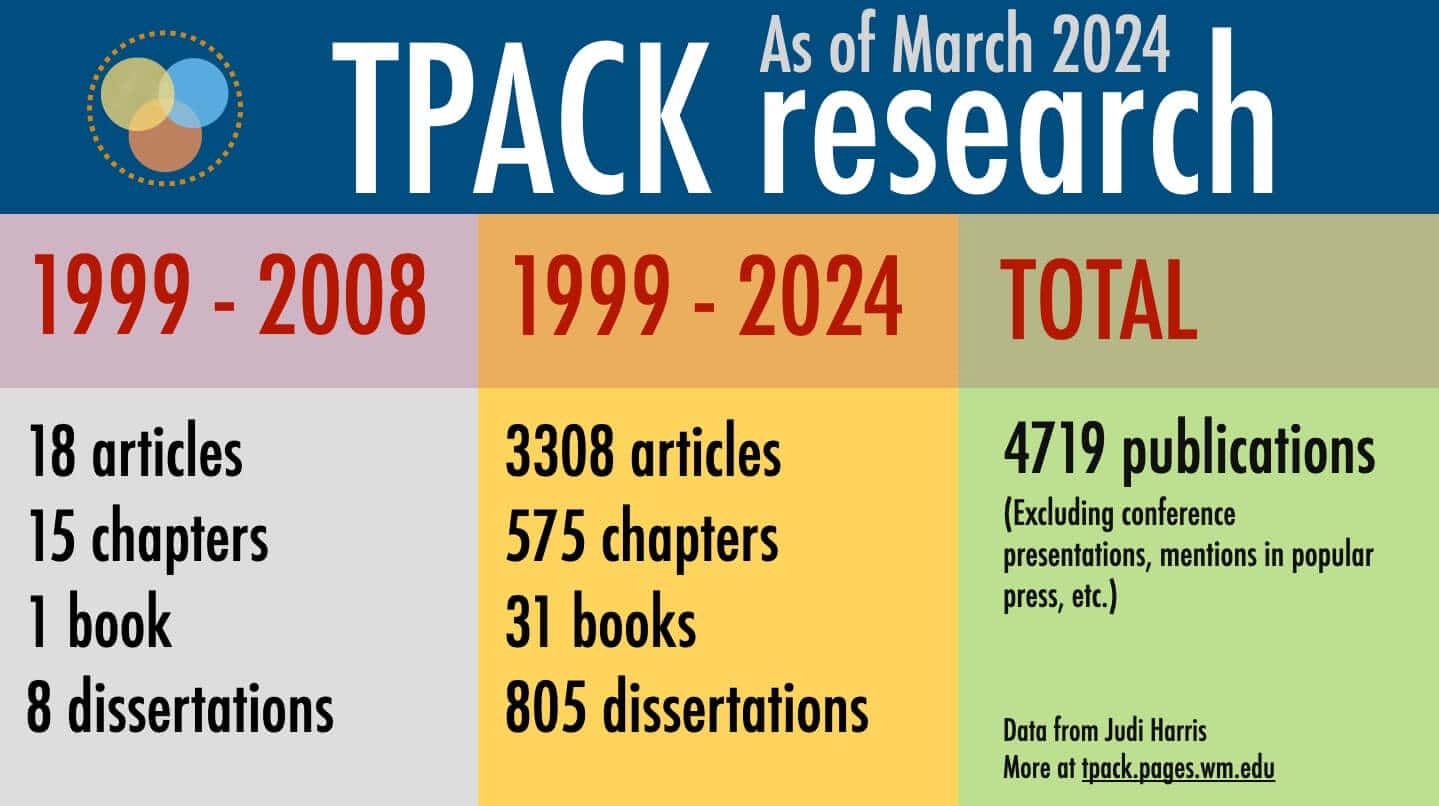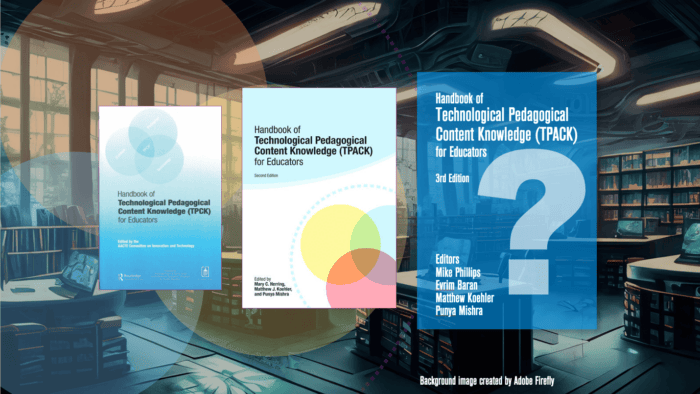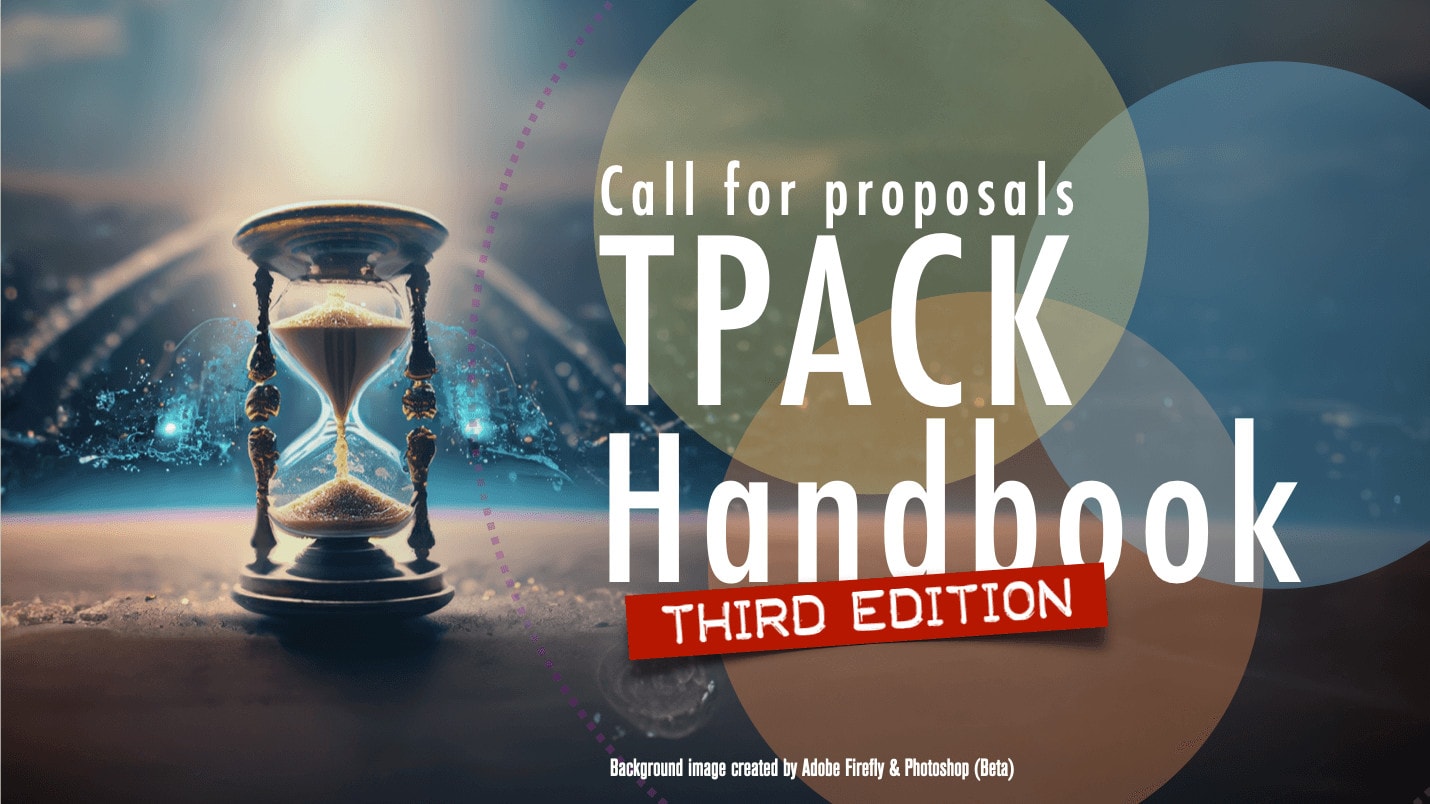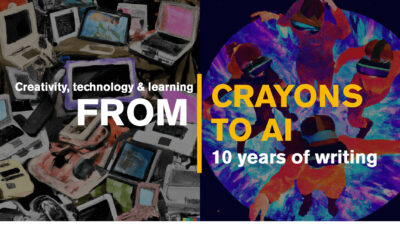I have been an academic for almost a quarter of a century (longer, if you include my years in graduate school), and it is a bit humbling that the work for which I (and my partner in crime, Matt Koehler) are best known for is the creation of a Venn diagram—which, when you think about it, is essentially what the TPACK framework is 🙂
That said, I am genuinely proud of this line of work. It has been incredibly influential in the fields of teacher education, teacher professional development, and beyond. It has spurred significant research over time, as the chart below (courtesy of Judi Harris) demonstrates.

Apart from the 2006 article in TCRecord that introduced the framework, there are two other influential books that helped disseminate our ideas—the two Handbooks of TPACK published by Routledge. Matt and I have contributed to both of them. The first, was the Handbook of Technological Pedagogical Content Knowledge (TPCK) for Educators, edited by members of the the Technology & Innovation Committee at AACTE, and included an introductory chapter by Matt and me (Koehler & Mishra, 2008). We played a more active role, as editors, in the second edition, Handbook of Technological Pedagogical Content Knowledge (TPACK) for Educators (2nd edition), with Mary Herring as lead editor and Matt and I playing second and third fiddle respectively (Herring, Koehler, & Mishra, 2016).
Recently, Matt and I were contacted by Daniel Schwartz, Routledge’s editor of educational technology and learning sciences books, who expressed interest in a third edition, given that it has been 7 years since the previous one. After some consideration, we decided to take the project on. However, we were also conscious that the field has grown and evolved quite dramatically since we had first introduced the framework to the world. Moreover, our lives, research interests and responsibilities had also shifted significantly over the years. We felt the need for some key collaborators who were more actively involved in this line of work and would be willing to lead the project, with Matt and me assuming the roles of third and fourth editor. This way we could continue to be involved in the work but more as guides rather than leaders.
We were extremely fortunate to find two outstanding scholars willing to embark on this journey with us. Apart from being exceptional researchers in their own right, they are both amazing individuals, personable, smart and, most importantly, fun to work with. They are: Michael Phillips from Monash University, and Evrim Baran from Iowa State University.
We are excited to kick this project off with a formal announcement… details of which are given below.

Invitation to contribute to the 3rd Edition of the TPACK Handbook
The TPACK framework is one of the world’s most cited and widely recognized frameworks guiding the use of educational technologies. The two previous editions of the TPACK Handbook are regarded seminal works that provided critical insights into the development of the framework, its theoretical foundations, and implications for practice. That said, the 2nd handbook was published in 2016, and a lot has happened since then—in terms of technological change, foundational research, new approaches to practice and more.
Given these changes, we believe it is time to take a new, critical perspective on current research on the framework and their implications for practice.
It is in this context that we are pleased to make an open call for chapters for the Third Edition of the Handbook of Technological Pedagogical Content Knowledge (TPACK) for Educators to be published by Routledge (and edited by Mike Phillips, Evrim Baran, Matthew Koehler and Punya Mishra).
We seek this handbook to not just capture the research that has happened since the last handbook but also to provide insights and directions for future research.
The authors may consider revising and enhancing current methods related to the conceptualization or application of the TPACK framework. They could introduce new theoretical or empirical uses of the framework, including, but not limited to, novel means of measuring TPACK or exploring its context, both locally and internationally. They could also delve into the ethical, social, and critical implications of the framework’s use, particularly in regards to issues like equity, social justice, and diversity. The relationship between TPACK and creativity could be another avenue for exploration. Lastly, the authors might investigate the impact of new technologies and methods, such as AI, Machine Learning, or Analytics, on the TPACK framework and their potential implications.
Interested authors should submit a two-page abstract including author’s name (co-authors are welcome), institution, tentative title, chapter outline, and five keywords and a brief bio to michael.phillips@monash.edu by August 31, 2023.
All proposals will be reviewed by the editorial team and authors will be informed of the editors decision via reply email by October 1, 2023.
Chapter authors will be expected to peer review other chapters in the book. Please note: If your abstract is accepted, there are no guarantees that your final chapter will be accepted. The final decision for full chapter acceptance will be based on the ongoing development of your chapter and double-blind peer reviewers assessments of your chapter.
Finally, please be aware of the aggressive timeline for both the abstract and the final 9,000 word chapter:
- Call for chapters opens: July 17, 2023
- Chapter abstracts due to editors: August 31, 2023
- Authors informed of editors’ decision: October 1, 2023
- Full chapter submission to editors: January 31, 2024
- Peer review to be completed and sent to authors: March 1, 2024
- First round of editing to be completed by authors: May 1, 2024
- Feedback from editors to authors: June 31, 2024
- Second round of editing to be completed by authors: August 1, 2024
- Final version of chapter to be submitted by authors: October 1, 2024
- Final submission to Routledge: December 15, 2024
Submissions and questions can be directed to Mike Phillips: michael.phillips@monash.edu




0 Comments